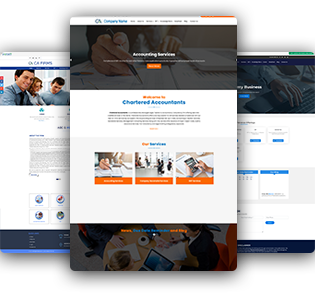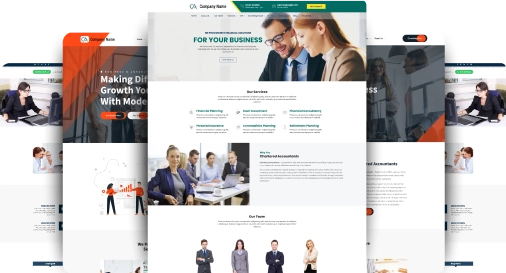
In the fast-paced world of modern business, financial management has undergone a profound transformation. The days of manual, location-bound accounting with pen and paper or bulky on-site software are long gone. Instead, cloud-based accounting has emerged as a game-changing solution, empowering businesses to streamline financial operations, boost efficiency, and gain access to real-time data from anywhere in the world. This article delves into the realm of cloud-based accounting, its advantages, and how it has completely reshaped the landscape of financial management.
Cloud-based accounting has truly revolutionized how businesses handle their financial data. Its accessibility, security, cost-effectiveness, and scalability have turned it into an enticing option for companies seeking to streamline their accounting procedures and foster collaboration. As technology continues to advance, cloud-based accounting is poised to assume an even more significant role in helping companies navigate the intricate financial world, all while maintaining agility and competitiveness in today’s ever-changing business environment. If your business hasn’t yet embraced cloud-based accounting, it’s high time to explore the wealth of possibilities it offers for financial management and growth.
What Does the Term Cloud Accounting Signify?
Cloud-based accounting, also referred to as online or web-based accounting, entails the management of financial data and processes through internet-connected software hosted on remote servers (in the cloud), as opposed to local storage on a user’s computer or on-site servers. This approach presents a multitude of advantages over traditional accounting methods, rendering it a widely favoured choice for businesses of all sizes. In cloud accounting, accounting software is hosted on secure remote servers, enabling small business teams to store and access accounting systems, reports, and financial documents from their office computers or any location with an internet connection.
Establish a Strong Online Presence with your Own Accounting Website Today
In what way Does the Cloud Accounting Function?
Cloud-based accounting functions by utilizing web-based software that enhances the efficiency of business operations. Small business proprietors and their finance teams can conveniently access vital data from their respective locations, facilitating collaboration and simplifying financial reporting. Users access these software applications via the internet or other network connections through a cloud application service provider, eliminating the need for individual desktop installations as everyone within the company can access the cloud from their own devices. This unified accessibility, from finance teams to accounts receivable, ensures that remote teams or branches can access the same critical data and financial records, resulting in time and cost savings while ensuring that everyone is on the same page.
Moreover, cloud accounting furnishes robust data security, with data backup and disaster recovery typically included as part of the service. This means that in the event of a fire, natural disaster, or technical issue with a company’s computer systems, your data remains securely protected in the cloud.
Comparison of Cloud Accounting and Traditional Accounting?
Numerous differences between cloud accounting and traditional accounting are there, on-site accounting. Cloud accounting is more influential. From anywhere accounting data could be accessed on the device through the support of an internet connection, excluding a few on-premises computers. After that cloud accounting software updates financial data automatically and furnishes the financial reporting in real-time, which the traditional accounting software is unable to perform. It directed that account balances are always correct and only certain errors are incurred because of the manual data entry. The same can accurately manage the multi-currency and multi-company transactions efficiently.
In the on-premises world, when a company expands, it pays more for software licenses and maintenance, as well as gets additional licenses and fees for other software such as database management and systems management. The business may also need to spend a lot of money on capital purchases of new gear, including servers. When a firm’s contracts expire, cloud solutions help it avoid being saddled with costly, permanent equipment and licenses. It also prevents significant cost increases when a corporation grows somewhat.
Moreover, cloud accounting needs a lot less maintenance compared to its conventional equivalent. The cloud provider takes care of the backups, upgrades happen on their own, and company computers don’t need to download or install anything.
Preparing Chartered Accountants for the Future
The Institute of Chartered Accountants in India (ICAI) has established the “Digital Accounting and Assurance Board” (DAAB) to promote a unified global approach to digital accounting and assurance. This involves the exchange of knowledge and best practices among its members. DAAB is dedicated to identifying, deliberating on, and highlighting issues related to accounting (including valuation) and assurance (including internal audit) in the digital realm.
According to the National Institute of Standards and Technology (NIST), cloud computing is defined as follows: “Cloud computing is a model that enables easy, on-demand, network access to a shared pool of configurable computing resources (such as networks, servers, storage, applications, and services) that can be rapidly provisioned and released with minimal management efforts or interaction with service providers.”
To put it in easier words, a cloud is a collection of resources, including processors and memory, which are pooled together. These resources are allocated to clients based on their needs, and clients can access them over the network. Additionally, clouds are inherently multi-tenant, meaning that multiple distinct users share the same pool of resources but remain isolated and separate from one another.
Cloud Computing features stated by NIST are as follows-
- Resource Pooling is the foundational element of cloud computing. In this context, the provider abstracts resources and consolidates them into a shared pool, allowing for the allocation of specific portions to various consumers.
- Cloud computing offers on-demand self-service, meaning consumers can independently manage their resources without requiring human administrator intervention.
- All cloud resources are accessible exclusively over a network, eliminating direct physical access.
- Rapid elasticity empowers consumers to dynamically scale their resource usage from the pool, enabling them to align their resource consumption with their specific demands.
- Measured service ensures that consumers utilize only their allocated resources and, if necessary, accurately bills them for their usage.
Cloud Security Comprises of the Below Stated three Elements–
Infrastructure Security- This forms the essential underpinning for maintaining security within the cloud environment, encompassing security measures at the foundational levels, starting from physical facilities and extending to how consumers configure and implement infrastructure components. In essence, it addresses the core building blocks from which all cloud services are constructed, including security for computing workloads, networking, and storage.
Application Security – This encompasses a vast and intricate realm of knowledge, covering everything from the early stages of design and threat assessment to the ongoing maintenance and defence of applications. While cloud computing can enhance the security of applications, it also necessitates corresponding adjustments to established practices, processes, and technologies that were not originally designed for cloud operation.
Read Also: ICAI Plans To Upgrade Digital Skills of CA Professionals
Data Security and Encryption – Data security serves as a pivotal tool for enforcing information and data governance. Data security measures can generally be categorized into three primary areas: controlling the data that enters the cloud, safeguarding and managing the data within the cloud, and ensuring security throughout the information lifecycle management.
For accountants, cloud computing presents a vast array of new options, such as
- To decide what to choose between cloud computing and in-house computing, conduct a cost-benefit analysis for clients.
- Offering consultation services for implementing cloud computing infrastructure, including the smooth transition from existing technologies.
- Conducting training sessions for staff members on how to operate the cloud computing facilities effectively.
- Providing tax consultancy services, both direct and indirect, to cloud service providers, including guidance on international tax matters.
- Providing management consultancy and support from traditional computing systems to cloud-based solutions during the conversion process. Assisting employees in understanding the operation of the system within the cloud environment. Additionally, it offers guidance on selecting the appropriate cloud computing environment and service model to enhance return on investment (ROI) and conducting system audits to ensure optimal functionality of these facilities.
In the realm of cloud computing, Chartered Accountants offer a range of consulting services that encompass Cloud Vendor Evaluation, Cloud Contract Negotiation, Cloud Implementation Guidance within organizations, and Advisory Roles in control implementation.
To ensure assurance in cloud computing, it is crucial to assess and verify the ability of cloud service providers to securely deliver cloud services in alignment with industry best practices, standards, and regulatory compliance. This assessment aids customers in determining which cloud provider consistently delivers the highest cloud assurance score and reliable history, instilling confidence in their trustworthiness. Establishing a well-structured and strategic cloud assurance framework paves the way for the safe and secure adoption of Cloud Computing. It furnishes senior management and business leaders with the assurance that comprehensive cloud assurance measures have been undertaken.
In addition to the conventional approach of mitigating risks through a meticulous examination of contracts, accompanying appendices, and service level agreements (SLAs), auditors should begin by identifying the specific type of cloud service being contracted.
Cloud computing governance refers to the overarching concept of applying specific policies and principles to the utilization of cloud computing services. Its primary objective is to enhance the security of applications and data, especially when they are hosted locally. Cloud computing governance is an aspect of IT governance that prioritizes accountability, defines decision-making authority, and strikes a balance between the benefits, risks, and resource allocation within a cloud computing environment. It involves the formulation of business-oriented policies and principles that determine the appropriate level of investment and control throughout the lifecycle of cloud computing services.
Cloud Computing Furnishes Specific Challenges for the CA
They are stated as
Confidentiality:
Preserving confidentiality is of paramount importance in safeguarding both organizational and individual data. It is imperative to integrate information security measures across multiple layers of cloud applications. There is a constant risk that data stored in the cloud may intermingle with other users’ data. Unintended data exposure can occur due to data remanence, which refers to residual data that persists even after attempts to erase it. Additionally, confidentiality may be compromised by untrustworthy cloud service providers (CSPs).
Integrity:
Upon entrusting data to the cloud, users rely on the cloud to provide dependable services while ensuring the security of their data and applications. Unfortunately, this trust may be betrayed if user data is tampered with or deleted. There are instances where dishonest cloud service providers may discard infrequently accessed data to save storage space or fail to maintain promised data replicas.
Availability:
The adoption of cloud services has led to a significant migration of resources to the cloud. While cloud computing offers cost-effective advantages for consumers and businesses, cloud service providers need to offer highly scalable and consistently available environments. This factor significantly influences the credibility of cloud services.
Data Privacy:
Cloud computing introduces substantial challenges to the data privacy of chartered accountants. Many cloud-based social media platforms leverage individuals’ private information for profit, potentially leading to conflicts with customers regarding privacy policies.
Data Ownership:
Numerous cloud services collect and store user data, making it inaccessible to users once provided. This necessitates a thorough evaluation of data ownership. For instance, in the context of auditors, certain personal data, such as customer numbers and email addresses, should not be retrievable by third-party services or any other software.
Backup Challenges:
One of the foremost concerns for organizations regarding cloud backup and disaster recovery revolves around security. An effectively implemented data protection plan ensures that all necessary information is backed up to facilitate business continuity.
Cloud computing has emerged as an excellent solution, offering a versatile, on-demand, and dynamically scalable computing infrastructure for various applications. This technology trend is significantly altering information technology processes and the IT marketplace. To fully realize the potential promised by cloud computing, it must ensure robust information security.
Cloud computing presents professional accountants with an opportunity to streamline their operations and provide client services efficiently, with minimal errors, and at a faster pace. According to ICAEW’s publication, “The Future of the Profession,” the evolving landscape of business, driven by technology and shifting regulatory environments, is posing both challenging and exciting prospects for accountants in various roles. The document underscores the importance of accountants possessing skills such as tech-savviness, effective communication, adaptability, strategic acumen, and networking prowess to thrive in the future.
This guide will help you understand the fundamentals of cloud computing, its benefits, and how it can transform your business Click here for your comprehensive guide to Cloud Computing for Accountants: https://resource.cdn.icai.org/65376daab52670cc.pdf
Check out ICAI President’s Message – March 2023 for Click here






